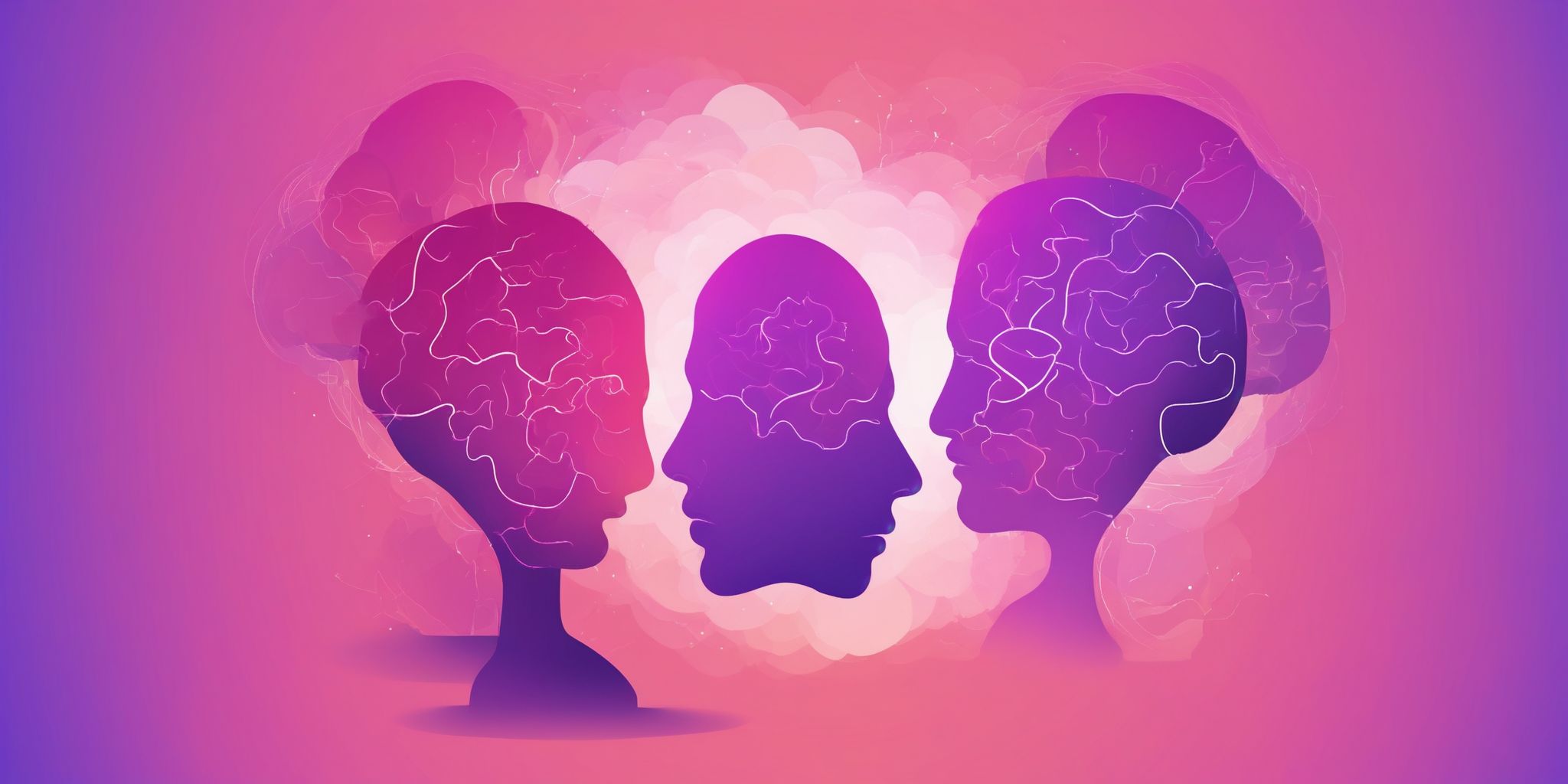Define Depression: Unveiling the Hidden Struggles of the Mind
Depression is a mood disorder characterized by persistent sadness and loss of interest in daily activities. It can affect how one feels, thinks, and handles daily activities, impacting overall quality of life.
Individuals with depression may experience symptoms such as feelings of hopelessness, worthlessness, and low energy levels. This mental health condition can disrupt relationships, work, and physical health, making it essential to seek help from mental health professionals. Understanding the signs and symptoms of depression is crucial in order to receive appropriate support and treatment.
Let’s delve deeper into the complexities of depression and how it can impact individuals’ lives.

Credit: www.umc.edu
The Impact Of Depression
Depression is a mental health condition that impacts mood and daily functioning. Symptoms include persistent sadness, loss of interest, and fatigue.
Depression can affect how a person interacts with others and their ability to concentrate. Daily tasks may become overwhelming and relationships strained.
Symptoms of Depression:
|
Effects on Daily Life:
|
Causes And Triggers
Depression is a complex mental health condition that is influenced by several factors. Understanding the causes and triggers of depression can lead to better management and treatment of the condition.
Biological Factors
Depression can be linked to various biological factors, including genetics, chemical imbalances in the brain, and hormonal changes. Studies have shown that individuals with a family history of depression are more likely to develop the condition themselves. Furthermore, abnormalities in certain neurotransmitters, such as serotonin and norepinephrine, have been associated with depression. Additionally, hormonal changes, such as those that occur during pregnancy or menopause, can also contribute to the development of depression.
Psychological Factors
Psychological factors play a significant role in the onset and progression of depression. Life events, such as trauma, loss, or chronic stress, can trigger depressive episodes. Negative thinking patterns, low self-esteem, and a tendency to ruminate on negative thoughts can also contribute to the development of depression. Furthermore, individuals with certain personality traits, such as perfectionism or excessive self-criticism, may be more susceptible to experiencing depression.
Demystifying Myths About Depression
Depression is a widely misunderstood mental health condition that affects millions of people worldwide. It is essential to debunk common myths surrounding depression to break the stigma and promote understanding.
Myth 1: Depression is just sadness. In reality, depression is more than just feeling sad. It is a complex condition that involves persistent feelings of sadness, hopelessness, and loss of interest in activities.
Myth 2: Depression is a sign of weakness. Depression is not a sign of weakness, but rather a medical condition that can affect anyone, regardless of strength or character. It is caused by a combination of genetic, biological, environmental, and psychological factors.
Myth 3: Depression can be overcome by just thinking positive. While positive thinking is helpful, it is not a cure for depression. It requires a comprehensive treatment plan, including therapy, medication, and lifestyle changes.
Myth 4: Only adults can experience depression. Depression can affect people of all ages, including children and teenagers. It is crucial to recognize the signs and provide appropriate support to young individuals.
By dispelling these misconceptions and promoting accurate knowledge about depression, we can create a more supportive and empathetic society for those living with this condition.

Credit: aicontentfy.com
Understanding Different Types Of Depression
Depression encompasses a range of types, each with distinct characteristics and symptoms. These include major depressive disorder, persistent depressive disorder, bipolar disorder, and seasonal affective disorder. Understanding the diversity of depression types is crucial for accurate diagnosis and effective treatment.
| Major Depressive Disorder |
| Characterized by persistent sadness and loss of interest in activities. |
| Symptoms include fatigue, changes in weight, and feelings of worthlessness. |
| Persistent Depressive Disorder |
| Also known as dysthymia, exhibits a long-lasting low mood. |
| People with this type may experience periods of major depression. |
Seeking Help And Treatment Options
Therapy and Counseling: Counseling sessions provide emotional support and coping strategies. Therapy helps to address underlying issues and develop healthy coping mechanisms.
Medication and Alternative Treatments: Prescribed medication can help manage symptoms for some individuals. Alternative treatments, such as acupuncture or yoga, may also be beneficial.

Credit: www.researchgate.net
Supporting Loved Ones With Depression
When someone we love is suffering from depression, it is important to provide them with support and understanding. One of the most significant ways we can do this is through effective communication and empathy. It is essential to listen carefully to their concerns and validate their feelings without judgment. Using open-ended questions can encourage them to share their experiences. We should also practice active and empathetic listening by giving them our full attention and acknowledging their emotions. Creating a supportive environment can make a significant difference in their recovery process. This includes being patient and non-judgmental, as well as offering unconditional love and reassurance that they are not alone. Additionally, learning about depression and its symptoms can help us better understand their struggles and offer appropriate support. Together, we can provide the love and support our loved ones need to navigate through their depression.
Living With Depression: Coping Strategies
Living with depression can be challenging, but proactive coping strategies can make a difference. Depression is a mood disorder that manifests as persistent sadness and loss of interest or pleasure in previously enjoyable activities. It’s important to seek professional help and find healthy coping mechanisms, such as exercise, therapy, and a strong support network, to manage symptoms and improve overall well-being.
| Self-Care and Stress Management | Building a Strong Support Network |
| Engage in activities that bring you joy and relaxation. | Reach out to friends, family, or a therapist for support. |
| Maintain a healthy routine with enough sleep and exercise. | Join support groups or online communities for connection. |
| Practice mindfulness and breathing exercises to calm your mind. | Attend therapy sessions or group counseling for guidance. |
Breaking The Silence: Promoting Mental Health Awareness
Depression is a common mental health disorder that affects millions of people worldwide. Education and advocacy play vital roles in promoting mental health awareness and breaking the silence surrounding depression.
Through education, people can gain a better understanding of depression and its impact on individuals. By spreading knowledge about the symptoms, causes, and available treatments, we can help reduce stigma and encourage individuals to seek help. It is important to emphasize that depression is a real illness and not a sign of weakness.
Advocacy is another essential tool in raising mental health awareness. By sharing stories, experiences, and resources, we can create a supportive environment that encourages open conversations about depression. This can help to eliminate misconceptions and provide validation to those struggling with their mental health.
In conclusion, education and advocacy are critical in destigmatizing depression and promoting mental health awareness. By breaking the silence, we can create a more compassionate and understanding society.
Frequently Asked Questions For Define Depression
What Is The Depression Simple Definition?
Depression is a mood disorder causing persistent sadness and loss of interest in activities. It affects daily life.
What Are 4 Major Causes Of Depression?
The four major causes of depression include genetic factors, brain chemistry imbalances, life events or experiences, and medical conditions.
Why Do People Get Depressed?
Depression can be caused by various factors such as genetics, brain chemistry, life events, and certain medical conditions. It is a complex condition that affects emotions, thoughts, and behavior, leading to feelings of sadness, hopelessness, and a loss of interest in activities.
What It Means To Live With Depression?
Living with depression can feel like a constant struggle, impacting thoughts, emotions, and daily activities. Symptoms vary, including sadness, fatigue, and loss of interest in things you once enjoyed. It’s crucial to seek help and support from professionals and loved ones.
Conclusion
Understanding depression is crucial for mental health awareness. It’s more than feeling sad; it’s a complex condition. Seeking help is important for recovery. Remember, you are not alone in this journey. By acknowledging and addressing depression, we can work towards a happier, healthier life.
Your mental well-being matters.




